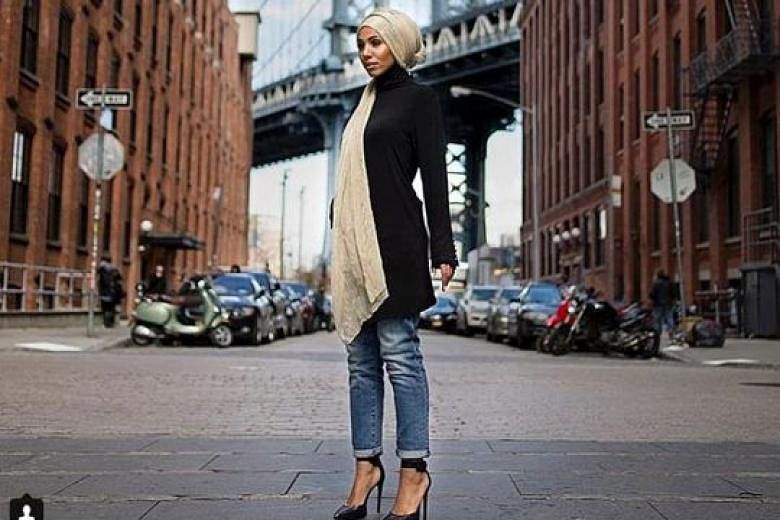NEW YORK • After converting to Islam in 2011, fashion photographer Lisa Vogl had difficulty finding modest, fashionable clothing.
That led her to create the Verona Collection.
Last year, she joined department-store chain Macy's development programme, The Workshop, which helps nurture businesses owned by minorities and women.
Through The Workshop, it became clear to Macy's that Vogl's brand was "a perfect example of a strong business that provides a unique product that serves a community of women looking for fashionable modest clothing options".
Macy's also said that customer interest was evident during a pop-up showcase of Workshop vendors last year in New York City.
Now, it has rolled out the Verona Collection, making it the latest company to try to capture a piece of the lucrative Muslim clothing market.
The collection is in stores and online, with international shipping available. Maxi dresses, long tops, hand-dyed hijabs, cardigans and pants are priced from US$12.95 (S$17) to US$84.95.
The collection could be a boost for Macy's which has, for years, struggled with lagging sales, aggravated by the rise of online discount retailers. In November, it said sales had slipped for the 11th consecutive quarter. In 2016, it announced plans to shutter about 100 stores, and closings have been carried out since.
The move into Muslim apparel represents an opportunity to capitalise on a robust market.
Globally, consumers spent US$254 billion in 2016 on Muslim attire, according to the latest Global Islamic Economy report. It predicted the market could be worth US$373 billion by 2022.
Luxury retailers, including Dolce & Gabbana and Burberry, have taken notice, as have companies that specialise in trendy casual wear, like Uniqlo, H&M and Zara.
Some of these retailers have released collections aimed at Muslim customers who live in the Middle East, but Islamic fashion has also cropped up in the United States in recent years.
In 2016, during New York Fashion Week, an Indonesian designer made history with a catwalk show in which every model wore a hijab.
"I believe fashion is one of the outlets in which we can start that cultural shift in today's society to normalise the hijab in America and other parts of the West, so as to break down stereotypes and demystify misconceptions," the designer, Anniesa Hasibuan, said at the time.
Of two billion Muslims worldwide, about nine million are in North America, according to a 2014 study by the American Muslim Consumer Consortium.
Last year, Nike released Pro Hijab for Muslim athletes, which is also available on Macy's website; and American Eagle offered customers a limited-edition denim hijab, which sold out.
The hijab has also been recognised by one of the US' largest toy retailers. In November, Mattel introduced a hijab-wearing Barbie, part of its "Shero" line based on inspirational women.
The doll was modelled after Olympic fencer Ibtihaj Muhammad, the first American athlete to compete in the Olympics in a hijab.
According to the Global Islamic Economy report, Muslim millennials are considered a powerful and growing economic force that will continue to transform the retail space with digital spending.
Half of Muslims today are younger than 15 and nearly two-thirds are 30 or younger.
Macy's will hope that it can click with these consumers with the Verona Collection.
NYTIMES

